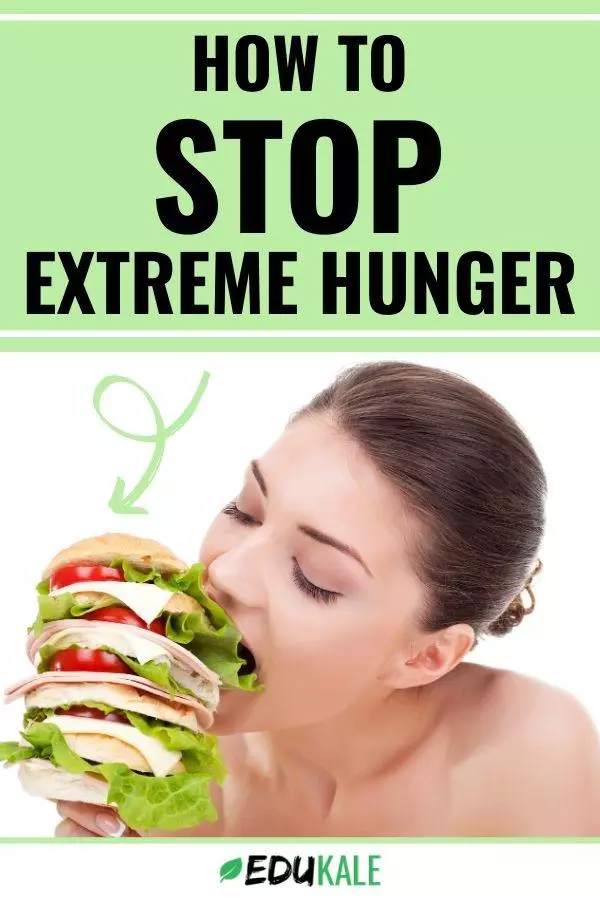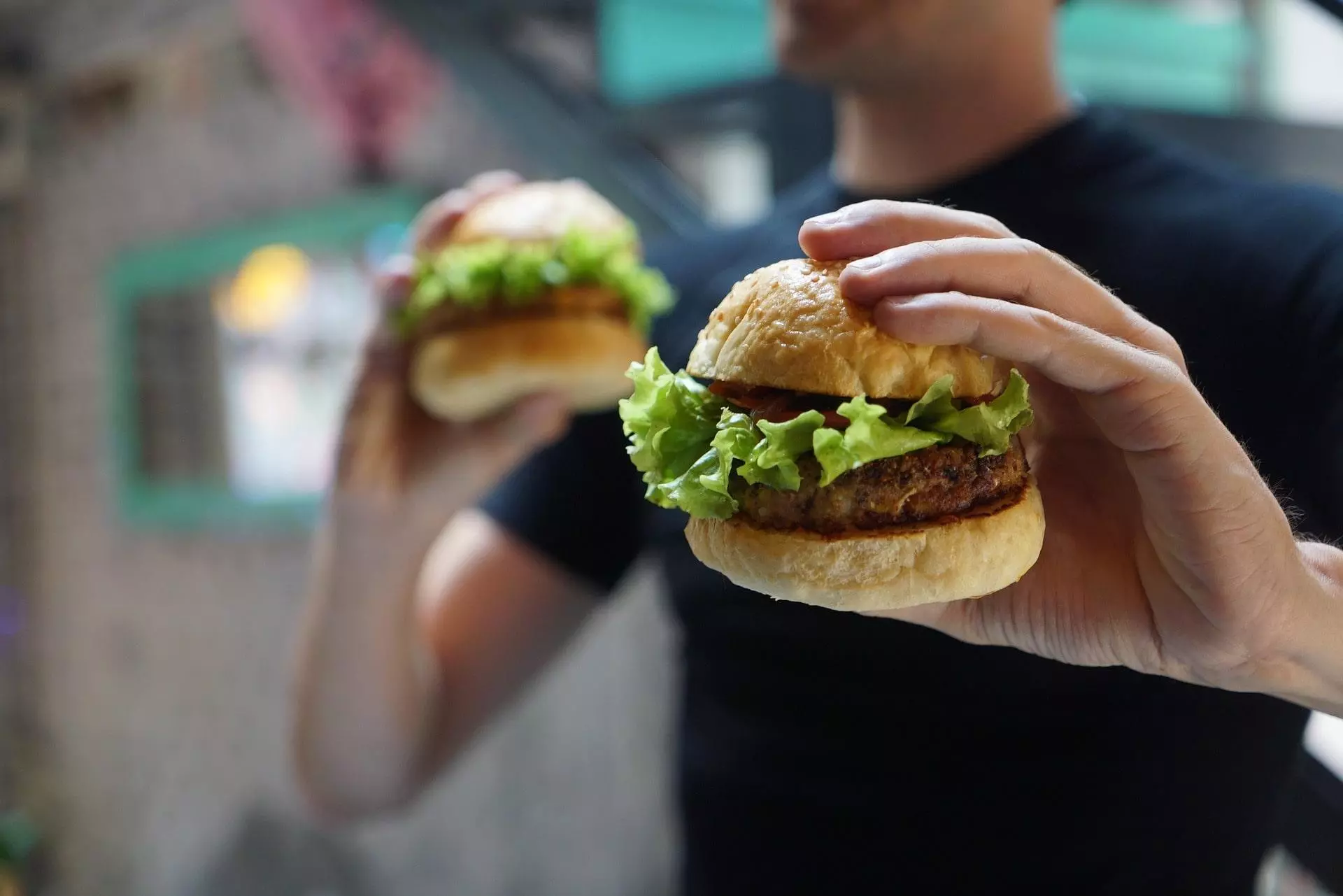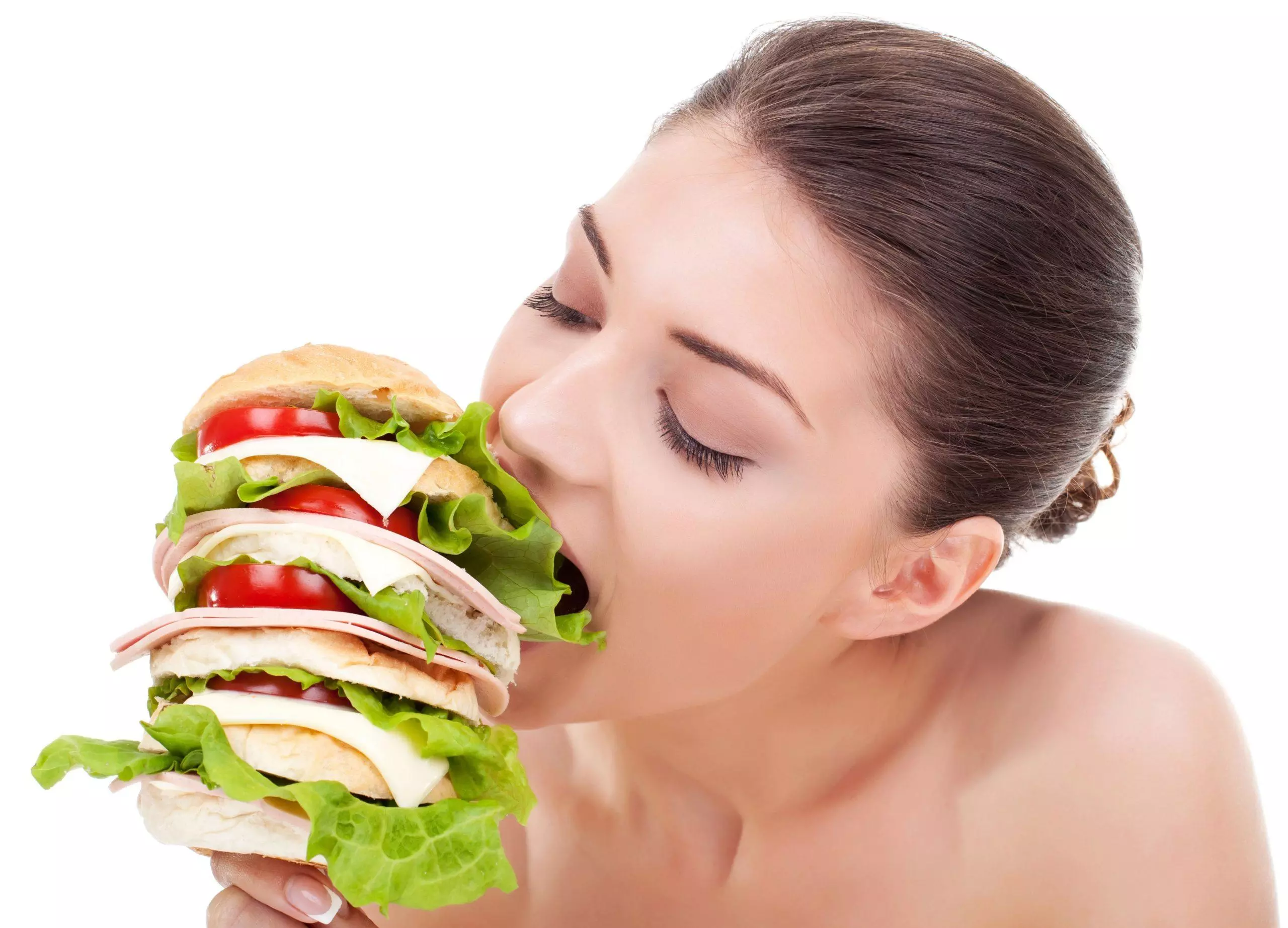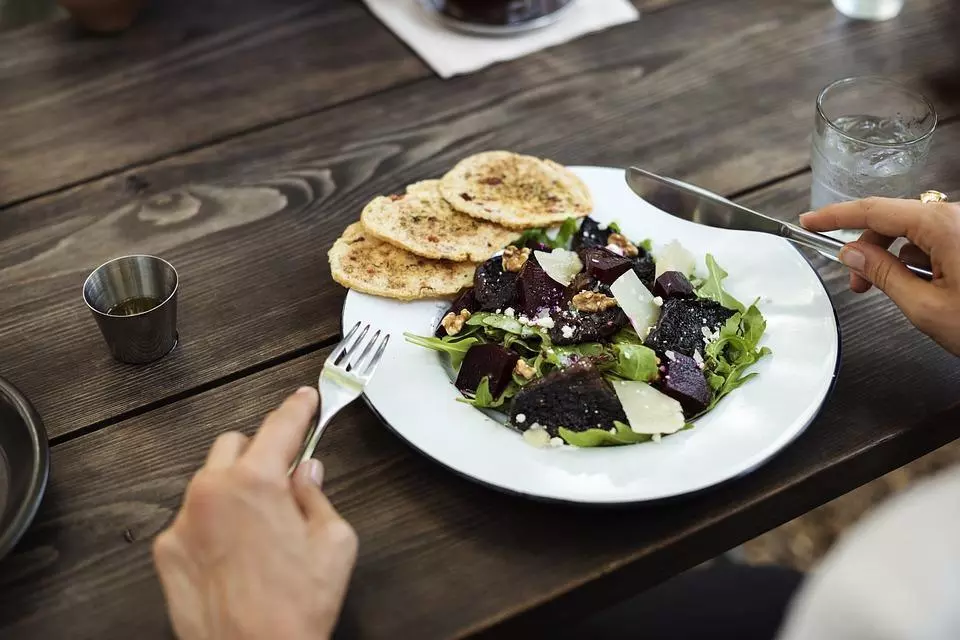This post contains affiliate links from which I may receive a small commission, at no extra cost to you. In no way does this affect my opinion or the information I provide on the product. Please read my disclaimer for more info.
Everybody knows what it’s like to feel hungry— it’s not fun.
Your stomach feels empty and growls, your energy and concentration levels are down, and you may even experience dizziness or nausea.
For most people, these signals aren’t too overpowering and go away after eating. Several hours can then go by before the cues come back again.
For other people, however, these feelings are stronger and seem to never go away, regardless of the food they eat.
This extreme hunger may be caused by several things and can be dealt with in a few different ways.

What is extreme hunger?
Extreme hunger occurs when normal hunger cues (empty and growling stomach, low energy, dizziness…) are not satisfied by a standard meal. Huge quantities are necessary in order for you to feel full, and the feeling of hunger can come back very quickly.
This often occurs when people are recovering from eating disorders or if they have been dieting for a while. After months or even years of being constantly underfed, your hormones are a bit out of order.
Let’s take ghrelin, the hormone that signals hunger. The less you eat, the more your ghrelin increases, yet you ignore it in order to stick to your diet. But once you start getting back to more standard eating patterns, your ghrelin levels can come back tenfold after being repressed for so long.

Why do I constantly feel hungry after eating?
As mentioned previously, it’s normal for your hunger and satiety cues to be a little all over the place after dieting for so long. If you feel like you haven’t been restricting your food intake and still deal with extreme hunger, it could be for a few other reasons.
Firstly, this could be caused by lack of sleep.
Sleep is of utmost importance for your health, and is also involved in appetite control. When you are sleep-deprived, your ghrelin levels increase, causing you to feel hungrier [1] .
You may be overly stressed.
When you are stressed, you have a tendency to eat more, specifically high palatable sweet and fatty food [2]. Stress increases cortisol release, which could promote hunger and cravings [3].
Your diet could also lack fiber.
Fiber has many benefits, such as reducing certain diseases, making your healthy gut bacteria thrive, and helping with weight management.
Indeed, consuming healthy high-fiber foods can help you feel fuller for longer after meals because soluble fiber slows down the speed at which foods are digested. Insoluble fiber can also fill up space physically in your stomach meaning you are likely to eat less. It can also decrease nutrient absorption resulting in lower calorie intake.
![]()
You may also feel extreme hunger because you don’t eat mindfully.
This encompasses eating too quickly or not paying attention to your food while eating [4]. When you eat too quickly, your body doesn’t have time to register the food intake until you have already over-eaten, which can lead to weight gain [5].
If you consume a set number of calories too quickly, it’ll take some time before you reach satiety. A couple of hours later, your next meal will be approaching and you’ll start to feel hungry for that, which will leave feeling like you’re hungry all the time.
In addition, if you eat while being distracted, this can increase your appetite. If you don’t focus on the food you eat, your body will take longer to register fullness signals. This can lead to increased hunger and desire to eat more throughout the day.
You have a medical condition or take certain medications.
If you don’t recognize yourself in any of these reasons, it could be a sign of a medical condition.
Hyperthyroidism, which is an over-activation of your thyroid, could stimulate your appetite [6]. Diabetes, hypoglycemia, anxiety, and premenstrual syndrome could also lead to increased hunger [7].
In addition, some medications could increase your appetite. Here are a few types of medicines that could increase hunger.

How to deal with extreme hunger
Now that you’ve figured out why you suffer from extreme hunger, here are a few ways to actually deal with it.
First of all, you should start by addressing the above issues.
Make sure that you get enough quality sleep. Try to find ways to destress: here are a few ideas if you don’t know where to start. It’s also important that you eat a healthy diet with plenty of fiber. You should also try to practice mindful eating, which has many benefits. Make sure to eat and chew slowly, focusing only on your food.
Finally, consult your doctor if you think that the extreme hunger you are experiencing may be the consequence of an underlying condition.
If you are recovering from an eating disorder or from a very restrictive diet, here are a few more pointers.
If you find that none of these things are working, it may be because your body actually NEEDS more food.
If you have been starving yourself for a while, it’s normal for your body to require some time to adjust. The best thing to do is to honor those hunger cues.
Eat until you feel full and satisfied, even if the calorie count seems enormous. Do so without feeling any negative feelings of guilt or shame.
If you stick to eating your regular food amounts and disregard the extreme hunger you are feeling, you’re only delaying your recovery process. I recommend being accompanied by a medical professional or dietician during this time to limit feelings of panic and helplessness.
Like I mentioned previously, it’s still important to eat mindfully throughout this process.
If you absent-mindedly stuff the entire jar of cookies down your throat while standing up in your pantry, it’s going to be much more difficult to reach fullness and satisfaction.
Make healthy, balanced meals for yourself, eat slowly, pay attention to each bite, and eat until you feel fully satisfied— even if it means three times your regular portions.
If you find yourself craving junk food or foods you normally wouldn’t allow yourself to have, let yourself indulge a little without guilt. Your body is telling you what it needs and you should learn to trust it.
If you have little knowledge regarding nutrition or mindful eating, I highly recommend learning the basics before jumping into it, and getting professional help if you can.

EXTREME HUNGER IN SHORT…
Extreme hunger is when you still feel hungry after eating a regular meal, require huge quantities in order to feel full, or feel physically full but still have the desire to eat more food.
You may experience this after recovering from an eating disorder or because you have been dieting for too long.
Other reasons why this may happen include lack of sleep, stress, having a poor diet, not eating mindfully, or having a medical condition.
In order to deal with extreme hunger, aim for a healthy lifestyle with adequate sleep, reduced stress, and a healthy diet.
If you are recovering from restrictive eating, try to honor these hunger cues, even if they seem excessive. Your body needs some time to adjust. Finally, don’t hesitate to get professional help along the way!
-Lucie
If you’re interested in nutrition, its impact on our health, and the science behind it, you should definitely read How Not to Die. In this book, Doctor Michael Greger, founder of Nutrition Facts, examines the top causes of death in America and explains how your diet can prevent— and in some cases even reverse— them. His advice is all backed by science and he writes in a very clear and entertaining way. This book isn’t a list of what you already know. It will teach you the keys to living a long healthy life, in a simple and practical way, and without spending fortunes on supplements and pills!
PLUS if you want to take it a step further, you can check out the How Not to Die Cookbook to implement the advice easily!


